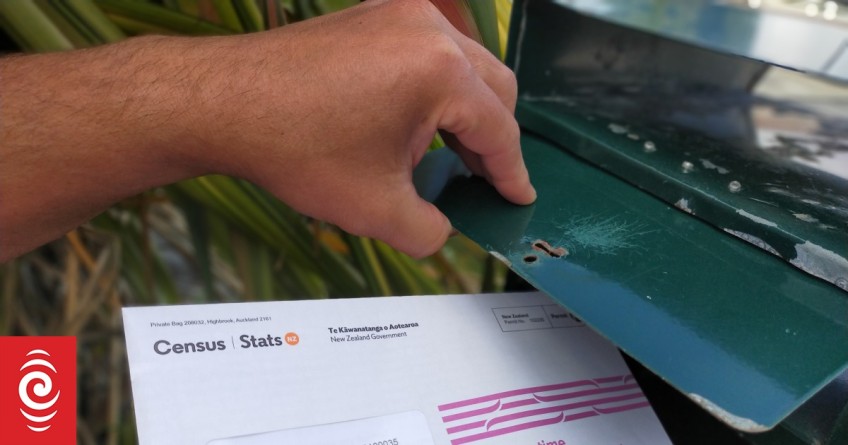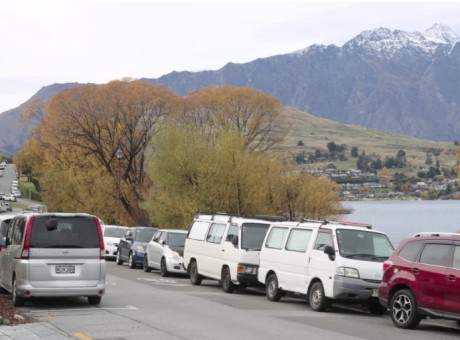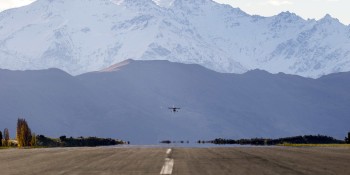Census on track to capture most - including Harry Styles

Statistics NZ officials are confident this year's census will go a lot better than the last big count in 2018, which had the lowest response rate in 50 years, particularly among Māori.
Five years ago, there was too much reliance on people filling out the census forms online - a problem Stats NZ deputy government statistician Simon Mason believes has been sorted.
"It's looking positive," he told RNZ's Morning Report on Tuesday, saying they are on track to beat 2018's response rate of 90 percent.
"Yesterday we needed about 1.2 million returns to get us where we think we needed to be on a positive trajectory, and we're about 1.4 million as of 5.30 this morning, so it's looking good.
"Obviously today is a big day for many, and lots of people are planning to do it today, so we'll know by the end of today what it's looking like."
Today - Tuesday, 7 March - is the official census day. The reason Stats NZ will have a pretty good idea of the turnout by the end of the day, without having received all the paper responses, is that far more people are doing it online now.
Mason said the split so far is 96.7 percent online, 3.3 percent on paper. In 2018, about 82 percent did it online. In 2013, that figure was 35 percent.
In 2013, turnout was 94.5 percent, but one in 10 didn't bother in 2018, despite it being compulsory under law for anyone in the country. And yes, that includes visiting pop star Harry Styles.
"Mr Styles will have to do it, yes. I don't know what he'll be choosing in terms of a mechanism, but we have got papers to whatever hotel he is staying in."
The punishment for refusing to take part is a maximum $2000 fine.
If people refuse, whether they get prosecuted and potentially fined depends on a range of factors - including whether they "have a strong negative attitude (including being abusive or threatening)" to census staff, and if they have discouraged others from taking part.
"We prefer that they were just able to do the census, and they gave us a call if there's anything prohibiting them doing that," Mason said.
"There are cases every census where we do some prosecutions unfortunately. It's probably not a good use of their time to be honest, and only takes seven minutes per person to do the census, so it feels like it's much more beneficial for people to do the census than face formal prosecution."
This year's census includes new questions around sexual orientation and gender for participants aged 15 and older.
"The rainbow community, which hasn't been well-represented in the data in the past, will now be represented in the data … so their needs can be further met by better allocation of funding through government agencies," Mason said.
"A lot of the data we collect goes towards population-based health funding, so it's really important - particularly in the health area, education - that we get the rainbow community represented here."
He said he was not worried about attacks on social media from anti-government types and conspiracy theorists.
"To be honest, I'm more concerned about our collectors facing dog bites or vehicle problems … there's a bit of abuse that some of our collectors are copping, but it's more dog bites and vehicle problems, rather than anything else."
Impact of Cyclone Gabrielle
People in Hawke's Bay, Northland and Tai Rāwhiti who may no longer have a letterbox, internet connection or even a home have until the 1 of June to take part.
Mason said it was "an unfortunate coincidence" that the regions with the lowest participation in the last census were among those hardest hit by the cyclone.
"But one of the fortunate things that had happened beforehand is that we had partnered with iwi in some of those locations, and they have been tremendously important not only in terms of the census but in meeting the needs of people who have been badly affected by these events."
The response rate among Māori in 2018 was just 68 percent, down from 88.5 percent five years previously.
Rahui Papa from the Iwi Leaders Forum said it had been working to get the message out that filling out the census was the best way to ensure Māori were counted.
"With iwi actually collecting their own data then it makes it a way more comfortable collection rather than people not from the community just rocking up to the door with the census information sheet."
Citizens Advice Bureau are also official assisted completion locations - where people can get help requesting paper census forms or filling them in online.
National adviser Sacha Green said the "digital first" approach by government agencies excluded some of Aotearoa's most vulnerable.
"This year's census is a good example of what it can mean to include everyone.
"We would love to see that multi-channel approach taken by all government agencies so people don't just have to do things online, but can access human support when they need it."
Still need to take part? Follow the link to complete online: https://online.census.govt.nz/






















